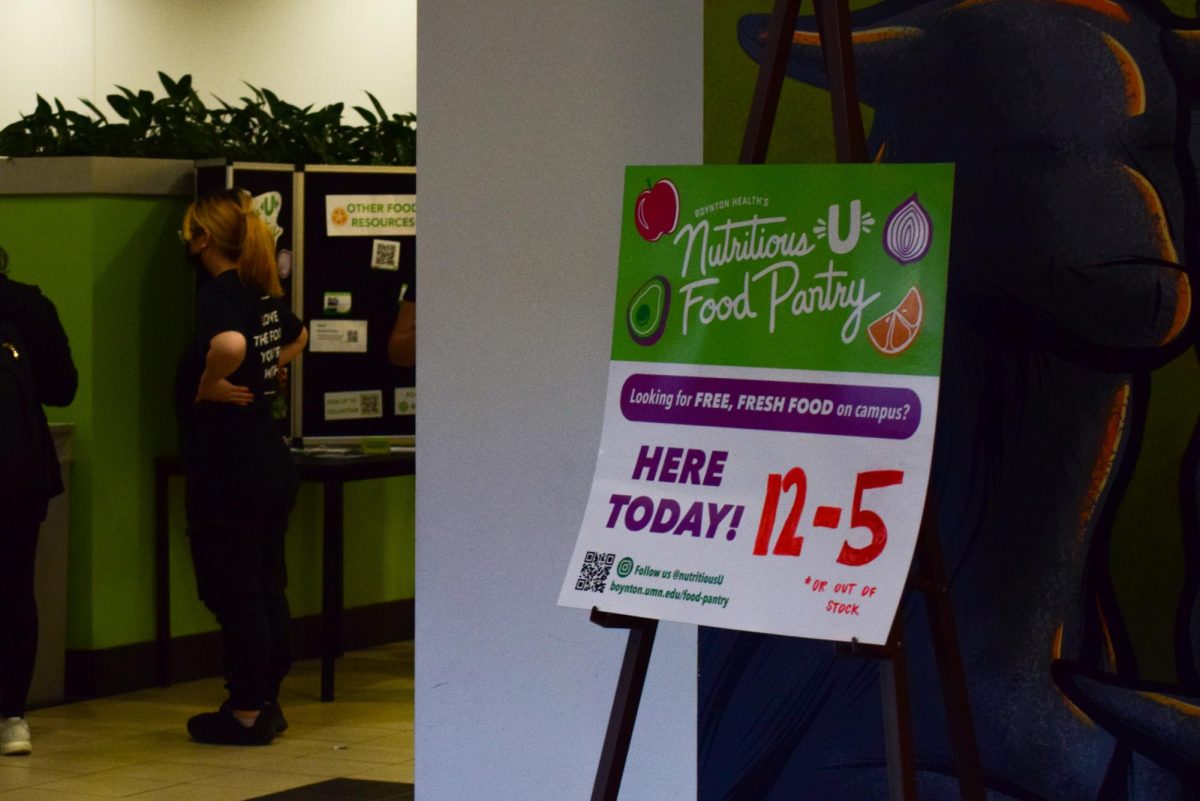A bill in the Minnesota Legislature would increase the state minimum wage to $15, and increase every year until it reaches $20 in 2028.
The current Minneapolis minimum wage of $15 will not see any immediate effects from the wage increase, but will in the following years. After the initial increase on January 1, 2025, the minimum wage will increase by $1.25 every year.
Minimum wage advocates are pushing for the wage increase as the cost of living in Minnesota exceeds the state minimum wage of $10.85, according to the Economic Policy Institute. Bill author Sen. Zaynab Mohamed (DFL-Minneapolis) said the bill will help workers earn a livable wage.
“Minnesota’s current minimum wage remains far below the living wage in every corner of Minnesota,” Mohamed said. “It has been far too long since we last raised the minimum wage, and I’m glad to hear many senators say $10.85 per hour is not enough in 2024.”
Restaurants nearby have a different opinion on the minimum wage increase.
Katie Essler, district manager of Black Coffee and Waffle House, believes the minimum wage increase is good for employees but more needs to be done to protect small businesses.
“The idea of upping the minimum wage is a good idea, but I think a lot of other things would need to be put in place to help assist small businesses in getting to that point,” Essler said.
If passed, the minimum wage increase will take effect in August, according to the bill.
National Federation of Independent Businesses State Director John Reynolds said he worries the increase in minimum wage will have a negative effect on small businesses in Minnesota.
“Their biggest concern is when you increase the cost of employing workers, you make it harder to employ workers and harder to keep doors open,” Reynolds said.
Sen. Glenn Gruenhagen (R-Glencoe) said in a committee hearing on March 19 that workers need a livable wage but that the minimum wage increase in the bill goes too far.
“We want people to earn a living wage at a rate that can help them experience the American dream,” Gruenhagen also said in the hearing. “One of the things you have to understand is this. When you grow government at a rate faster than population and private sector, you actually go backward.”
Reynolds said tax credits or subsidies are ways to protect minimum wage employees without hurting small businesses.
“In turn, this is going to force a lot of them to cut back on employment or close their doors because they can’t afford to stay open,” Reynolds said, referring to a lack of action. “I think that that’s what state lawmakers need to strive for, is, ‘How do you help without hurting?’”
Essler said her store will survive but hopes the legislature will consider other ways to support small businesses.
“Larger corporations can afford to absorb it,” Essler said. “They ship so much of their labor overseas and they can ship it out to states with a lower minimum wage and it doesn’t really affect them. For businesses that are founded in the state of Minnesota and based entirely in the state of Minnesota, all of our labor and all of our product purchasing is happening here.”
























David
Apr 5, 2024 at 6:19 pm
The common misconception is that raising minimum wage increases prices. That is not true. Raising minimum wage always reduces prices. When the people who are in the poverty wage level are given a respectable wage it drives prices down because it increases demand for their products. So more businesses open to compete for the money that has been given to people who spend it. Check out the past minimum wage increases. It’s great for the economy. Just not so great for corporate ego.
Zach
Apr 5, 2024 at 1:27 pm
Just remember, when wages go up so do overall costs. Restaurants especially. $20 hr well that $5 chz burger is now going $8 – 10. Businesses will pass that cost on to consumers to maintain margin eating up any wage increase you see. Thus voiding the actual increase. Or businesses will close doors which is what some are doing in CA after the same Increase was initiated.
All for a living wage but it all goes hand in hand.
Chris Tuchtenhagen
Apr 5, 2024 at 12:15 pm
This just tells me that the dollar isn’t worth the paper it’s printed on. Maybe it’s time for the treasury department to adjust the dollar to have value, i.e. pay down debt and reduce the debt ceiling.
Nunya
Apr 5, 2024 at 11:25 am
Tight so y’all did understand how basic economics works the first time… Thank you for perpetuating inflation.. perhaps instead of devaluing the dollar by giving people more money, the politicians should actually do their jobs and control corporate greed. I suppose politicians would need to control their own greed first, I won’t hold my breath…
Jimmy
Apr 5, 2024 at 11:08 am
I already have cut way back on eating out on fast food due to inflation. I mostly buy non-food items online as well due to cost and availability. If this law goes into effect, prices across the board will have to rise to cover the cost. I will cut back even more. Basically, I will pretty much never eat fast food. Good for my health but maybe not so good for the economy.
Caroline Hildebrand
Apr 5, 2024 at 9:31 am
$20 an hour is working so well in Cali that fast food rates skyrocketed and many fast food places are automating so they need fewer employees.
Roger
Apr 5, 2024 at 7:36 am
If your going to be an independent business operation, you have assume the responsibility of the expenses that go with it.
OTR owner/operators are paid around 2.00 per mile. A large semi costs 160,000 ,fuel 4.00 a gallon, gone most nights, buying meals in restaurants. Lyft/Uber drivers don’t spend anywhere near maintenance costs of OTR drivers.
If you can’t handle taking care of you business venture, then work for someone that pays an hourly wage and be told what and where to do your job.
C.K.
Apr 3, 2024 at 11:12 pm
So you’re saying it costs a Lyft driver around $50 to drive a passenger 5 miles?! Maybe you should stop for 3 seconds and figure out what you’re talking about!
Matt Woodling
Apr 3, 2024 at 9:19 pm
Gruenhagen thinks $20 per hour is too much. I wonder what he would think if he stopped for 3 seconds and it was reminded that the Lyft driver is responsible for all of the car expenses, which are going to be somewhere between $7 and $12 per mile depending on how old the car is, how expensive the car is to buy and run and how the car is financed.
Gruenhagen also would do well to remember that all of the car’s risk is assumed by the driver. So if he gets in an accident or the car breaks down and he loses a week or two of pay, he or she may not be compensated at all for that.